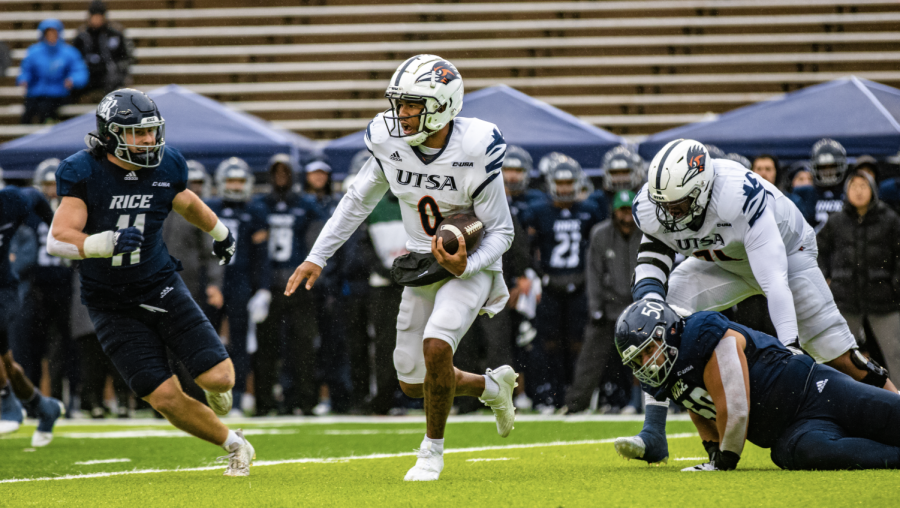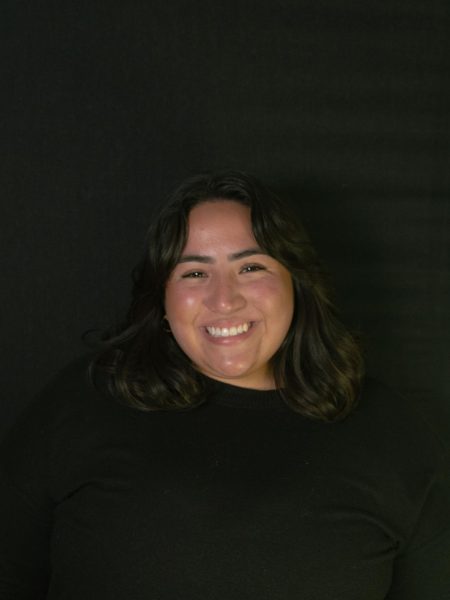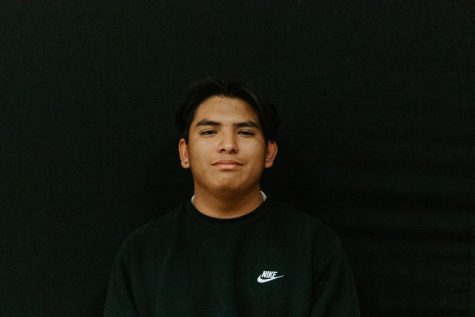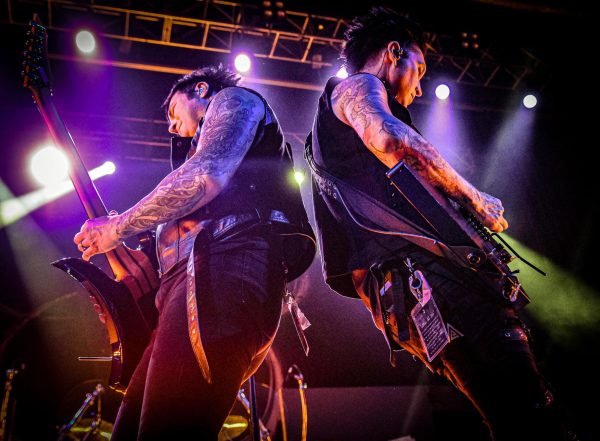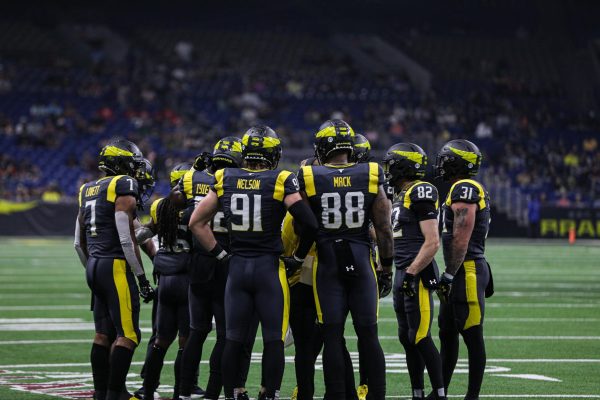Frank Harris: ‘People don’t realize how hard it is to be a Black QB’
February 11, 2023
For the first time in NFL history, Super Bowl LVII will be the first time the NFC and AFC champion both have a starting quarterback that is Black.
Texas natives Jalen Hurts of the Philadelphia Eagles and Patrick Mahomes of the Kansas City Chiefs will face each other for the first time since the 2021 season to compete for the Lombardi trophy.
It was not until 2017 that all 32 NFL teams had started at least one Black quarterback. Before Super Bowl LVII, there were only eight Black starting QBs to be in the Super Bowl, and not until 1988 was there a starting quarterback that was a Black man. Thirty-five years later, two teams with Black starting quarterbacks will meet in the Super Bowl. Currently, 11 starting QBs in the NFL are Black.
Frank Frank Harris is the starting QB here at UTSA. He is an essential member of the football team and a leader in the Roadrunner community as well.
Before their defeat at the Cure Bowl, Harris led UTSA to their second consecutive C-USA championship win. A feat that landed UTSA Football at the 23rd spot in AP’s college football rankings for the 2022 season.
“It’s crazy just to see that,” Harris said. “It’s hard for a Black quarterback to even make it that far, so seeing two of them playing in the Super Bowl at the highest level, it’s pretty special.”
Harris admits he has idolized players such as former Eagles QB Michael Vick. “Seeing that he could go and play at the highest stage. And even today, seeing all these Black QBs in the NFL just helps a lot. It gives you a lot more confidence to go out there to play and have fun.”
“I’ve just loved the sport ever since I was young,” Harris said of football. “My dad would tell me about the position and told me that everyone would try to change my position because I am Black, so he said if I ever got the opportunity to play in a QB position, to stick with it. After he told me that, I started to see what he was talking about. Older fans will still say, ‘he can’t throw the ball, he’s this, he’s that, he should change his position.’ We hear a lot of it,” Harris said.
“People don’t realize how hard it is to be a Black QB and all the stereotypes that we get. I know it was hard for those guys [Mahomes and Hurts], so seeing them play at the highest level is definitely pretty special. It brings a lot of notoriety, being a QB and being Black. You can play at the highest level. One of them is going to win in the end, so that’s pretty cool,” said Harris.
As for the two competing NFL quarterbacks, they are also quite aware of their presence in this upcoming game. “I think it’s history. I think it’s something that’s worthy of being noted, and it is history. It’s come a long way. I think it’s only been seven African-American quarterbacks to play in the Super Bowl, so to be the first for something is pretty cool. I know it will be a good one,” Hurts said to ESPN.
“I’ve learned more and more about the history of the Black quarterbacks since I’ve been in this league. The guys that came before me and Jalen set the stage for this, and now I’m just glad we can set the stage for kids that are coming up now,” Mahomes told ESPN.
Mahomes and Hurts may be setting the stage for players worldwide, but they put in the work to get to where they are today.
Mahomes told the Kansas City Star, “Not a lot of people see that when you’re growing up. You don’t get to see that people really have to work hard to become as good as they are. So, for me seeing that as a young age as I’ve grown up has shown me that I have to work just as hard to get to that level.”
Harris would agree with that sentiment, knowing exactly what it’s like to fight for his position as quarterback.
“It’s a lot of work that goes behind the scenes, and then being Black at the QB position, you’ve got to put in extra work because you’re not a typical QB,” Harris said.
“I don’t know what it is, the stereotypes people have on us, whether people think we aren’t smart enough or we’re too athletic for a position, but it’s just crazy for people to try to say that as a Black QB, ‘they can run the ball well,’ but they never talk about how great of a thrower they are. So seeing that — two Black QBs in the Super Bowl — will hopefully help Black QBs expand to the level that they are at,” said Harris.
According to the National Football League Players Association (NFLPA), nine decades ago black men were banned from playing in the NFL. Athletic ability was not called into question but racial prejudice proved to be an obstacle some athletes had to overcome. Harris explained why he thought a stereotype that targeted the intelligence of black athletes exists solely due to their race.
“Scouts have tried to change my position,” Harris said. “I just think that if you’re good at a position, your skin color shouldn’t matter; you should be able to play that position. Every big school wanted me to change my position to a receiver or to defense, and I never understood why. Even when I had better stats than QBs at big D1 schools, most schools didn’t want me to play as their quarterback. That’s why I think they try to change your position because they don’t think you’re smart enough to learn all aspects of football. And when you do, it kind of surprises people. I don’t see where the stereotype comes from, whether we’re smart enough to play. It doesn’t matter what race you are; you shouldn’t be frowned upon because you are a particular race, but it definitely happens. I would sit there and couldn’t figure out what the reason was aside from being Black.”
Doug Williams, who played for the now Washington Commanders, became the first Black QB to start in and win a Super Bowl in 1988. “You know, as a Black quarterback, it was never about my ability to play the position. That wasn’t the question. The question has always been leadership. Could you lead a team? You know, quarterback – it’s not about whether or not a Black guy could lead a team. It’s whether or not they’d get the opportunity to do it,” Williams said to NPR.
“Yes,” Harris said in response to that quote. “If you never get the opportunity to get out there and show that you could do that, how would they know? I feel that everybody needs a chance, and I think with two Black guys going to the Super Bowl, it creates a platform that shows people that it doesn’t matter the color of the player. If you’re good enough, you can take a team to the highest level and go win a Super Bowl. It’s a great thing that the whole world will watch two Black quarterbacks in the Super Bowl. That’s crazy. There [are] not many head coaches that are Black either or GMs or owners too; it’s crazy. But if you look at rosters in the NFL, 95% of the team is Black.”
In 2016, former San Francisco 49ers QB Colin Kaepernick kneeled during the National Anthem to protest brutality against Black people. When he did this, NFL fans were divided on the issue. Critics couldn’t decide whether this was an anti-American display of disrespect for the military or if it was being done to shine a light on an ongoing issue that many Americans are still afflicted with today, racial prejudice. Since the end of that season, Kaepernick has been a free agent in the NFL, yet no team has signed a contract for him. Instead, he was reprimanded for bringing upon a trend we still see athletes exhibit at games today, seven years later.
“I’m not going to sit here and say I agree with him and what he did, but I definitely don’t disagree,” Harris said. “It’s the land of the free, but you still see Black people getting treated unfairly. I definitely understand why he did it; I think he used the platform in the right way. Everyone was upset with him, but he was at the highest stage and was able to bring a lot of attention to a cause he cared about. It’s sad that a lot of people thought he was doing it to disrespect the military. He was just trying to say that it’s the land of the free. Why are we still getting treated this way?”
“It was hard where I grew up, everybody thought that Kaepernick] should never get a job again, but they’re not Black, so it’s easy to say that,” Harris said. “When you get pulled over by a police officer, you can’t do certain things. You get stereotyped, you go into places and people look at you a certain way. If you’re not Black, you won’t be able to understand what it feels like to be treated like that. It’s hard to get somebody and put them in our shoes.”
Harris said that Coach Jeff Traylor tries to help his athletes step inside those shoes and understand what some of his team faces on a day-to-day basis.
“Coach does a great job at addressing social injustices,” Harris said. “I give a lot of praise to Coach Traylor for doing that all the time. He’s always educating us about stuff that’s going on in the real world. He knows that we have to have these uncomfortable conversations that people don’t like to have. But in order for something to change, we have to talk about those kinds of things. People don’t know what they don’t know. People just have to try to put themselves in situations that will change their perspectives.” Harris said that Traylor advises his team that his team needs to stick up for each other and stand together.
“My parents always told us not to worry about everybody else, just do what you do and have fun because, at the end of the day, you’re the one out there playing,” said Harris.
Harris said that no matter who loses, they will learn from it and move on, though when it comes to winning, he thinks the Eagles will take home their second Super Bowl win.
“I think the Eagles’ defense is so good,” Harris said. “Kansas City has a great offense, but I don’t know about the defense, so I’m going to go with the Eagles. I want to see a great game. I want to see Jalen Hurts and Pat Mahomes ball out; it’ll be crazy to see those guys go back and forth at the Super Bowl. Like I said, two Black QBs, it’s history in the making; it would be pretty special to see.”

